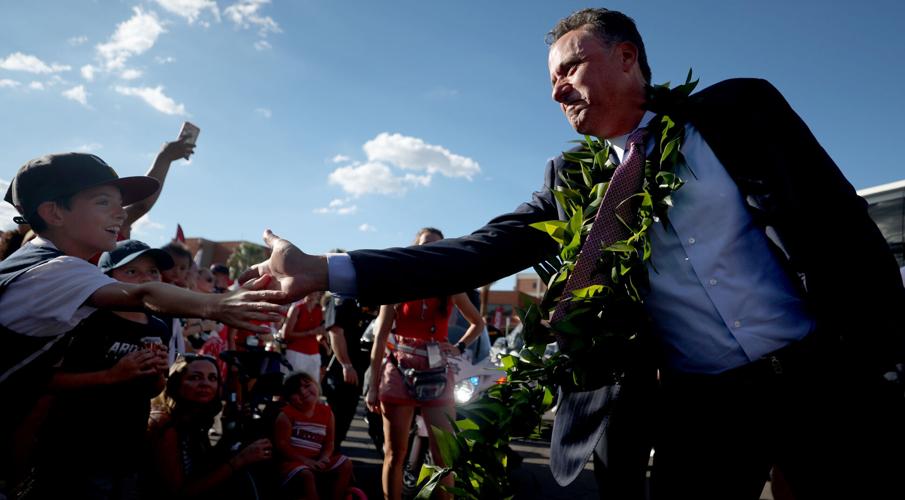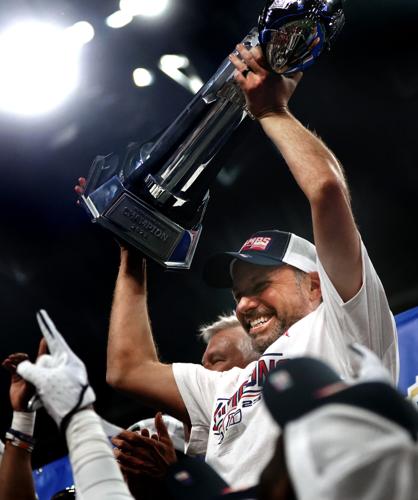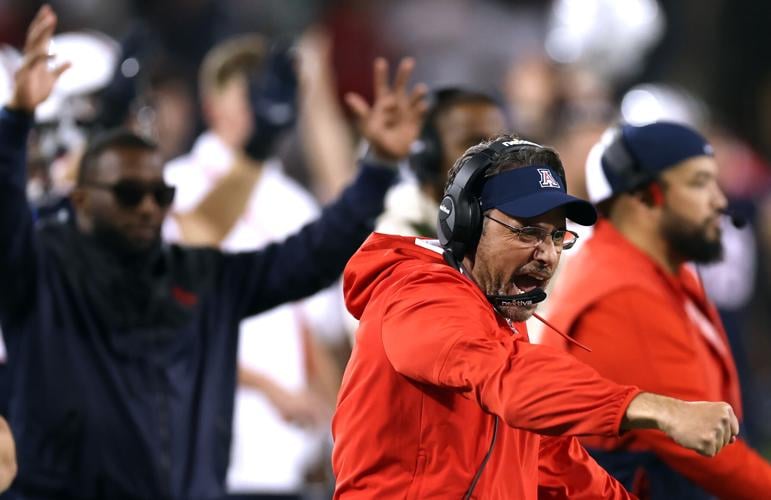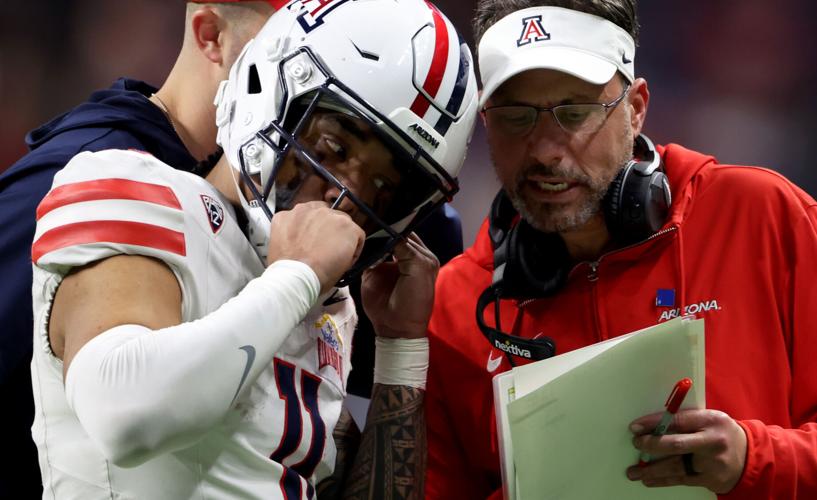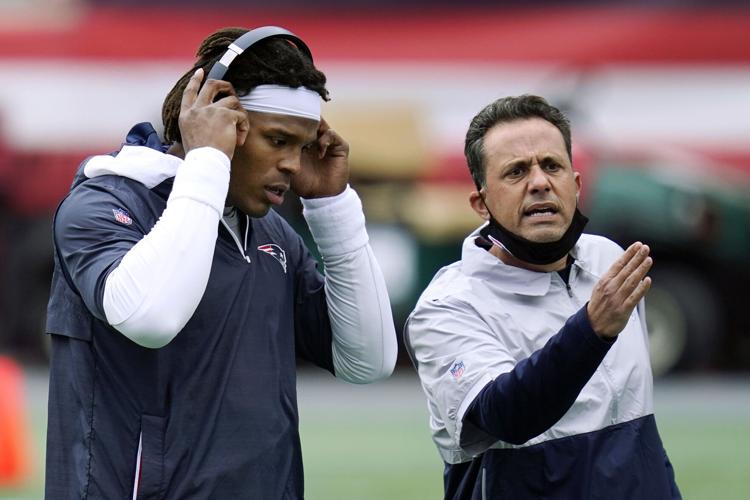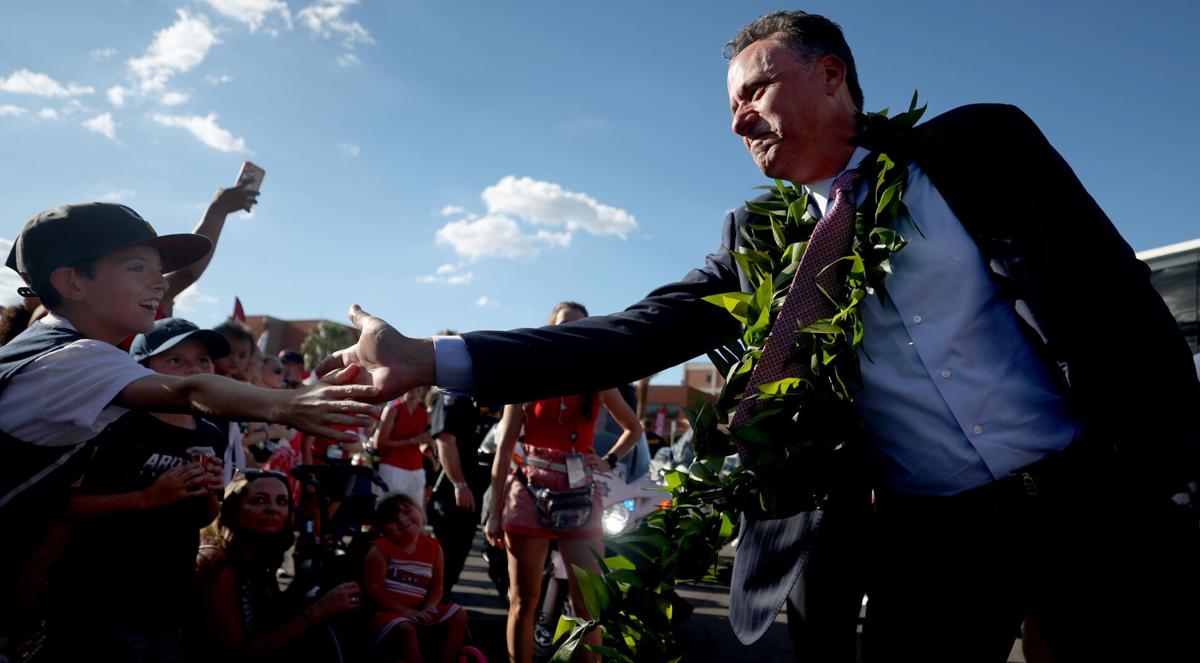March, 2003. Houston, Texas. Jedd Fisch, a 26-year-old offensive analyst for the NFL’s Houston Texans, suffers an aortic dissection, a tear in his aorta, and undergoes emergency surgery.
Prognosis: negative. His chances of survival are thought to be less than 10%.
Fisch is hooked up to a ventilator for six days, wires holding his chest together. He has collapsed lungs and pneumonia. His vocal cords are paralyzed, meaning he cannot speak during his four weeks at the Houston Methodist Debakey Heart Center.

Greg Hansen is the longtime sports columnist for the Arizona Daily Star and Tucson.com.
Yet Fisch has enough consciousness to scribble a message to Texans coach Dom Capers on a piece of paper.
“Do I still have my job?’’ he writes.
In June 2003, three months after being rushed to the hospital, Fisch tells the Houston Chronicle of his near-death ordeal: “If you lay in a hospital bed and were told there’s a 30% chance of paralysis, a 30% chance of kidney failure and a 30% chance you’re not waking up, to come out and see a couple of incomplete passes doesn’t ruin your day.’’

Arizona football coach Jedd Fisch (pictured hoisting the Valero Alamo Bowl trophy Thursday night in San Antonio) turned the UA program’s fortunes around just about as fast as could have been done, flipping a 1-11 team off a 20-game losing streak into a 10-win, possible top-10 finish in just two seasons.
Perhaps that beat-the-odds mentality is what led Fisch to be fearless in his pursuit of the Arizona football coaching vacancy in December 2020. The Wildcats had lost 12 consecutive games.
What’s an 0-for-12 streak when you’ve survived an aneurysm in your aorta, a cardiac event so profound that Fisch once told the Detroit Free Press that his chances for survival were “as thin as dental floss.’’
Isn’t that an apt description of Arizona’s football program after the Wildcats — Fisch’s Wildcats — went 1-11 in 2021.
The Wildcats were the Pac-12’s dental floss.
Today, the Wildcats are 10-3. They have won seven consecutive games, five against Top 25 opponents. They pulled off a seemingly impossible comeback to beat No. 12 Oklahoma 38-24 in Thursday’s Alamo Bowl.
“Do I still have a job?’’

UA football coach Jedd Fisch, pictured during the Wildcats' win over No. 20 UCLA on Nov. 4, piloted Arizona to seven consecutive wins to close out the 2023 season, including a 5-0 mark over that span against ranked opponents.
Fisch has become the most compelling coaching story in college football, and that includes Jim Harbaugh and Nick Saban and you name it. Now, two short years after his 1-11 head coaching debut, Fisch and the Wildcats could conceivably end the season as one of the top 10 teams in the nation.
He is the No. 1 selection in the Star’s 28th edition of Tucson’s Top 100 sports figures of the year. How did he do it?
He did it by delivering a new, 21st-century model of head coaching — a hybrid, in a sport that too often clings to its dictatorial coaching days of Woody Hayes and Bo Schembechler.
Unlike his UA predecessors Rich Rodriguez, Mike Stoops and John Mackovic, all of whom ruled with an in-your-face fist, Fisch has shown that leadership is no longer about hierarchy and control. To Fisch and the Wildcats, success is now measured by collaboration and empowerment.
It shows in the way he hired a coaching staff. He was unafraid to acquire big-name coaches with big-time resumes, like Chuck Cecil, Brennan Carroll, Duane Akina, Jimmie Dougherty and Ricky Hunley. That’s not the way Kevin Sumlin, Mackovic or Rodriguez did it. They often surrounded themselves with yes-men, sycophants, and beginners.

Ever the tactician, after Arizona scored on an 86-yard ping-pong fumble recovery late in the third quarter of Thursday's Alamo Bowl, UA coach Jedd Fisch got on the same page with quarterback Noah Fifita, left, on how they were going to handle the ensuing 2-point conversion play. Fifita turned nothing into something, and Arizona never looked back, scoring the game's final 25 points en route to a 38-24 win to seal the program's first 10-win season in a decade.
Fisch surrounds himself with skill and insight. If Arizona leads the NCAA in any category, it is surely positivity.
When Fisch was hired to be offensive coordinator of the Miami Hurricanes in 2011, head coach Al Golden told reporters: “Jedd’s very bright. He makes it for the kids. He makes it fun every day. He engages them and they learn a lot, they respond quickly.’’
When he was hired to be Michigan’s offensive coordinator in 2015, his ex-boss at the Denver Broncos, head coach Mike Shanahan, told reporters: “Jedd can work with anybody because he’s a smart guy. With his personality, he gets along with everybody.’’
And it’s not just football. Dr. Joseph Coselli, the renowned Houston cardiologist who saved Fisch’s life 20 years ago, told the Houston Chronicle: “We’ve become very good friends. He’s gregarious. He’s friendly. He’s just a really smart, pleasant guy.’’
Smart and pleasant works.
Fisch’s long climb to head coaching success includes a voluminous travel log, job to job, almost unmatched in college football. After leaving Steve Spurrier’s Florida staff in 1999, Fisch had one solid, if uninspiring offer — to be a graduate assistant for the Idaho Vandals.

Arizona coach Jedd Fisch (pictured in 2020 during his role as quarterbacks coach with the NFL's Patriots, chatting with New England signal caller Cam Newton before a game against the San Francisco 49ers) has moved around a ton in his coaching career. After Gainesville, Florida, he's been in Houston and Baltimore; Denver and Minneapolis; Seattle and Miami; Jacksonville, Florida, and Ann Arbor, Michigan; Los Angeles and the Boston area; and now Tucson, where he's made the previously-downtrodden UA football program not just relevant, but just about must-watch.
But before he could move to Moscow, Idaho, Fisch got his first break, accepting a $25,000-a-year job to be an offensive analyst for the Houston Texans. Then came six weeks in ICU at Houston Methodist. After that, Fisch began to act on his second chance at life. His goal to someday become a head coach required 20 long and winding years.
He went from the Texans to the Baltimore Ravens to the Denver Broncos to the Minnesota Golden Gophers to the Seattle Seahawks to the Miami Hurricanes to the Jacksonville Jaguars to the UCLA Bruins to the Michigan Wolverines to the Los Angeles Rams and to the New England Patriots. Every move seemed to be a step up.
When I asked him about his complicated job résumé, he referred to it as “my many purposeful moves.’’
“People will trust you if you can illustrate how you can help them succeed,’’ he said.
We have seen that trust come to life with the development and on-field success of his Class of 2022 recruits such as Noah Fifita, Tetairoa McMillan and Jacob Manu, the core of Arizona’s rise-from-ashes, storybook reconstruction.
In many ways, Fisch’s long coaching journey is just beginning. He is 47. When Dick Tomey was hired to coach at Arizona, he was 48.
In 2008, Fisch was the Denver Broncos’ first-year receivers coach. Among those he coached was rookie Eddie Royal, a second-round draft pick from Virginia Tech who had a break-out season with 91 receptions for 980 yards.
After learning of Fisch’s near-death heart event five years earlier, Royal told the Denver Post: “He sees every day as a blessing. I have never seen him in a bad mood. That could be the reason he’s so happy every day. I don’t think he takes an hour for granted.’’
“Do I still have my job?’’
If the UA is fortunate, Fisch will turn his stay at Arizona into the job of a lifetime.
Jedd Fisch, Delaney Schnell, Noah Fifita, Roman Bravo-Young, Brent Strom and Tommy Lloyd top Greg Hansen's list of the top sports figures in Tucson this year.
VIDEO: Alamo Bowl: Arizona football coach Jedd Fisch shares how his Wildcats settled down to eventually retake the lead and pull out a win. Fisch spoke following the No. 14 Wildcats’ 38-24 win over No. 12 Oklahoma in the Valero Alamo Bowl on Thursday, Dec. 28, 2023, in San Antonio, Texas. (Courtesy Valero Alamo Bowl)
VIDEO: Alamo Bowl: Arizona football coach Jedd Fisch shares how his team’s defensive has improved over the course of the 2023 season, speaking postgame after the No. 14 Wildcats’ 38-24 victory over No. 12 Oklahoma in the Valero Alamo Bowl on Thursday, Dec. 28, 2023, in San Antonio, Texas. (Courtesy Valero Alamo Bowl)
VIDEO: Alamo Bowl: Arizona football coach Jedd Fisch shares his desire to let the Wildcats’ bowl win be a true conclusion to the 2023 season for his team, rather than a jumpstart so quickly to what might come to be in 2024. Fisch shared his remarks after the No. 14 Wildcats’ 38-24 win over No. 12 Oklahoma in the Valero Alamo Bowl on Thursday, Dec. 28, 2023, in San Antonio, Texas. (Courtesy Valero Alamo Bowl)
VIDEO: Alamo Bowl: Arizona football coach Jedd Fisch discusses postgame how his players have learned over time on how to close games out following the No. 14 Wildcats’ 38-24 win over No. 12 Oklahoma in the Valero Alamo Bowl on Thursday, Dec. 28, 2023, in San Antonio, Texas. (Courtesy Valero Alamo Bowl)
VIDEO: Alamo Bowl: Arizona football coach Jedd Fisch discusses the play of the UA’s offensive line unit without future NFL draft pick Jordan Morgan, who opted out of the bowl game to prepare for the draft. Fisch shared his thoughts with assembled media after the No. 14 Wildcats’ 38-24 win over No. 12 Oklahoma in the Valero Alamo Bowl on Thursday, Dec. 28, 2023, in San Antonio, Texas. (Courtesy Valero Alamo Bowl)
VIDEO: Alamo Bowl: Arizona football coach Jedd Fisch delivers his initial postgame remarks after his No. 14 Wildcats’ 38-24 win over No. 12 Oklahoma in the Valero Alamo Bowl on Thursday, Dec. 28, 2023, in San Antonio, Texas. (Courtesy Valero Alamo Bowl)
VIDEO: Alamo Bowl: Arizona football coach Jedd Fisch shares his thoughts on how the No. 14 Wildcats battled back from down two scores in the second half to eventually defeated No. 12 Oklahoma 38-24 in the Valero Alamo Bowl on Thursday, Dec. 28, 2023, in San Antonio, Texas. (Courtesy Valero Alamo Bowl)


